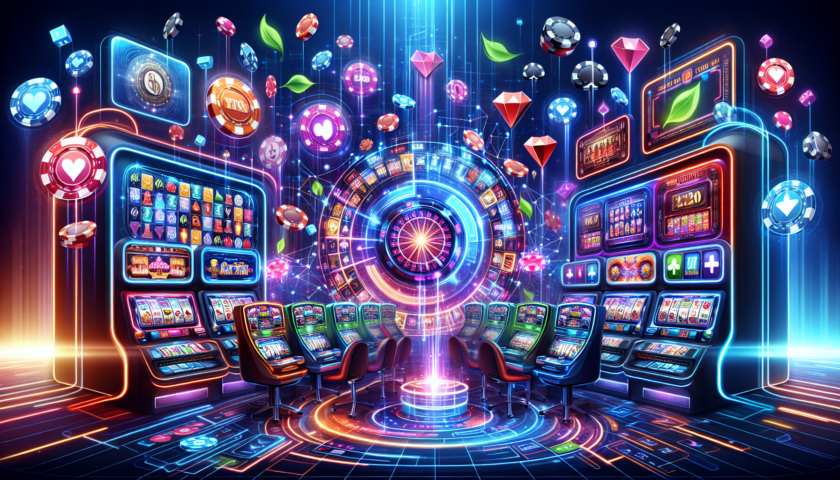In recent years, the world of online gaming has expanded beyond what many once thought possible. Gaming platforms today offer more than just a place to play; they have evolved into massive virtual communities, complex ecosystems, and advanced entertainment hubs that cater to diverse audiences. As technology continues to advance, the future of Hoki805 online gaming platforms promises to be even more immersive and interconnected.
The Rise of All-in-One Gaming Ecosystems
Traditionally, online gaming was segmented across various platforms: PC, console, mobile devices, and specific game servers. However, recent advancements have led to the rise of all-in-one gaming ecosystems that bring together different types of games, virtual economies, social interactions, and more. Popular platforms like Steam, Epic Games Store, and Xbox Live have not only provided players with an easy way to access and play games, but they have also created marketplaces where developers can sell games and players can purchase in-game content or services.
One of the most notable shifts has been the integration of social features. These platforms now allow players to connect through voice chat, multiplayer games, social feeds, and even video streaming. The distinction between “gaming” and “socializing” has blurred, creating an environment where friends, influencers, and fans share not only their gaming experiences but also their lives. This transition has led to an explosion of “content creation” platforms like Twitch and YouTube Gaming, where gaming isn’t just a passive experience—it’s a creative, interactive spectacle.
Cloud Gaming: A Game Changer
One of the most groundbreaking innovations in the gaming world has been the development of cloud gaming. Platforms like Google Stadia, Nvidia GeForce Now, and Xbox Cloud Gaming (formerly Project xCloud) are revolutionizing how we access and play games. Cloud gaming allows players to stream games directly to their devices without needing powerful hardware. This eliminates the need for expensive gaming consoles or high-end PCs, and opens up gaming to a broader audience.
Cloud gaming also enables cross-platform play, where players on different devices can join the same game. Imagine playing the same game on your smartphone, PC, and console without worrying about losing progress. This seamless transition between platforms is transforming the accessibility of online gaming, making it easier than ever for players to enjoy their favorite titles across various devices.
The Emergence of Virtual and Augmented Reality
Virtual reality (VR) and augmented reality (AR) are pushing the boundaries of what online gaming platforms can offer. VR platforms like Oculus Rift and PlayStation VR allow players to immerse themselves in fully interactive, 3D virtual worlds, while AR apps, such as Pokémon GO, layer digital experiences over real-world environments. These technologies are creating a new breed of gaming experiences that are more lifelike and interactive than ever before.
For example, VR chat platforms allow users to not only play games but also engage in social experiences, watch movies together, or explore virtual spaces in ways traditional gaming platforms cannot match. As the hardware and software improve, we can expect more platforms to adopt these technologies, enhancing the depth and richness of online gaming worlds.
User-Generated Content and Game Development
Another growing trend is the rise of user-generated content (UGC) within online gaming platforms. Games like Roblox, Minecraft, and Fortnite have redefined what it means to be a gamer. These platforms allow users to create their own games, build virtual worlds, and even monetize their creations. Roblox has become a phenomenon where players can design entire experiences, from simple obstacle courses to complex simulations, and share them with the world.
This democratization of game development is enabling more creativity and diversity in the types of games being created. Players are no longer limited to playing games developed by large studios; they can now participate in creating them. This has opened up gaming to a new generation of developers and players who might not have had the resources or opportunities to create games before.
